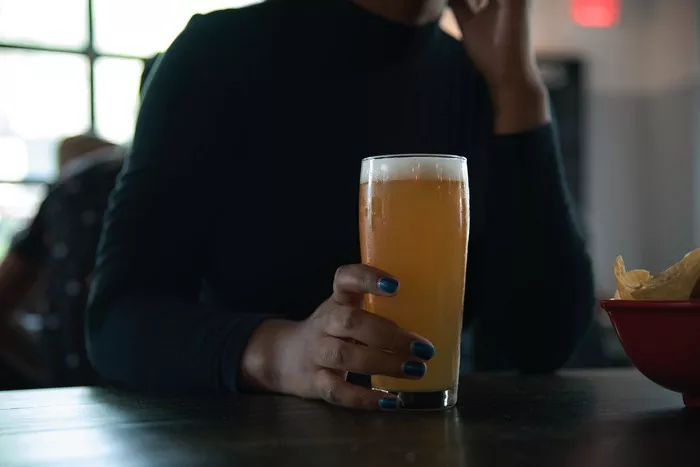Beer, a beloved alcoholic beverage enjoyed globally, holds a peculiar reputation for increasing the frequency of urination. The casual drinker might notice an urge to visit the restroom more frequently after consuming a few beers. The scientific rationale behind this phenomenon encompasses various factors, from the composition of beer to its impact on bodily functions. Exploring the intricate relationship between beer consumption and increased urination offers insights into the physiological mechanisms at play.
Composition of Beer and its Impact on Urination
Understanding why beer prompts frequent urination requires a closer look at its composition. Beer primarily consists of water, alcohol, carbohydrates, and various compounds contributing to its flavor profile. Alcohol, the primary psychoactive ingredient in beer, acts as a diuretic. When consumed, alcohol inhibits the production of vasopressin, an antidiuretic hormone responsible for regulating the body’s water balance. Consequently, reduced vasopressin levels lead to increased urine production, contributing to the frequent urge to urinate associated with beer consumption.
Moreover, the high water content of beer plays a significant role. As a liquid, beer contributes to the overall fluid intake, and the body tends to eliminate excess fluids through urination. This effect is amplified by the volume of beer consumed, leading to increased urine production and subsequent trips to the restroom. Therefore, the combined influence of alcohol’s diuretic properties and beer’s high water content contributes substantially to the frequent urination experienced after drinking beer.
Alcohol as a Diuretic Agent
Alcohol’s diuretic effect, a well-documented phenomenon, significantly impacts the body’s urinary system. Upon consumption, alcohol interferes with the kidneys’ ability to reabsorb water effectively. Instead, it promotes water excretion by affecting the kidneys’ filtration process. Consequently, the body expels more water through urine than it would under normal circumstances, leading to increased urine output. This mechanism accounts for the noticeable increase in urination after drinking beer, especially in higher quantities or within a short timeframe.
Furthermore, the diuretic effect of alcohol can disrupt the body’s electrolyte balance. Excessive urination due to alcohol consumption may lead to the loss of essential electrolytes such as sodium and potassium, potentially causing dehydration and subsequent adverse effects on overall health. This underscores the importance of moderation in beer consumption to mitigate the risk of dehydration and maintain a healthy electrolyte balance.
Impact of Carbonation and Volume on Urination
Beyond alcohol’s diuretic properties, other factors inherent in beer contribute to increased urination. Carbonation, commonly found in many beer varieties, can also stimulate urination. The carbon dioxide bubbles present in carbonated beers may trigger the bladder’s stretch receptors, signaling the need to empty the bladder more frequently. Consequently, the combination of alcohol’s diuretic effect and carbonation’s influence on bladder function further intensifies the urge to urinate after consuming beer.
Additionally, the volume of beer consumed plays a pivotal role in the frequency of urination. Larger quantities of beer result in increased fluid intake, directly impacting the body’s urinary system. The higher the volume of beer consumed, the more the body needs to eliminate excess fluids, leading to more frequent trips to the restroom. Therefore, both the carbonation levels and the quantity of beer consumed contribute synergistically to the increased frequency of urination associated with beer consumption.
Individual Variations and Tolerance Levels
It’s important to note that individual differences in tolerance to beer and its effects on urination exist. Factors such as body weight, gender, tolerance to alcohol, and overall health can influence how one’s body responds to beer consumption. Individuals with higher tolerance levels or accustomed to consuming alcoholic beverages may experience less pronounced effects on urination compared to occasional or first-time drinkers.
Moreover, individual metabolic rates and hydration levels also play crucial roles. Some individuals may metabolize alcohol more efficiently, reducing its diuretic impact. Similarly, variations in hydration levels before consuming beer can influence how the body responds to increased fluid intake, affecting the frequency of urination.
Moderation and Hydration: Key Considerations
Despite the undeniable connection between beer consumption and increased urination, moderation remains pivotal in minimizing its effects on urinary frequency. Practicing moderation by consuming beer in controlled amounts allows the body to process alcohol more effectively and reduces the likelihood of excessive urination. Moreover, staying adequately hydrated by alternating between beer and water can help counteract the dehydrating effects of alcohol and mitigate the risk of dehydration.
Furthermore, choosing beers with lower alcohol content or opting for non-carbonated varieties may alleviate some of the urges to urinate frequently. Beers with lower alcohol content have a reduced diuretic effect, while non-carbonated options might not stimulate the bladder as much, resulting in less frequent urination.
Conclusion
The frequent urge to urinate after consuming beer stems from a combination of factors, including alcohol’s diuretic properties, the high water content of beer, carbonation levels, and the volume consumed. Alcohol’s interference with the body’s water regulation, coupled with its impact on kidney function, leads to increased urine production. Additionally, carbonation and the sheer volume of beer further contribute to heightened urinary frequency.
Understanding these mechanisms underscores the importance of moderation in beer consumption to minimize its impact on urination and overall hydration levels. By being mindful of quantity, opting for lower-alcohol or non-carbonated alternatives, and maintaining adequate hydration, individuals can enjoy beer responsibly while mitigating the urge to urinate frequently.
In essence, while the relationship between beer and increased urination is multifaceted, moderation and awareness of individual tolerance levels remain key in enjoying this popular beverage without excessive disruption to the body’s urinary system.


